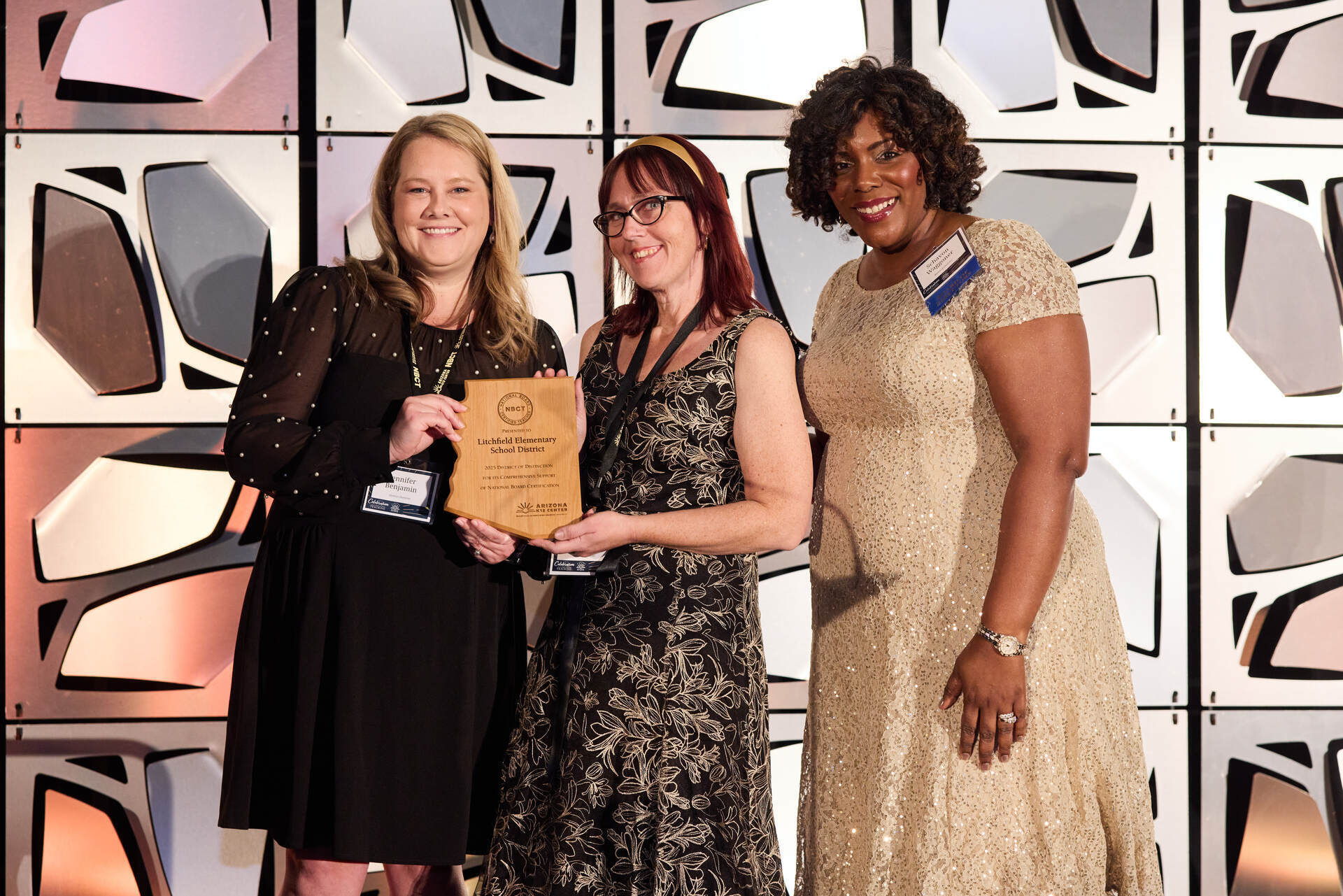March 15, 2018
Interview Tips for Teachers
Learn our do’s and don’ts for landing the classroom of your dreams.
Welcome to interview season, the time of year that Arizona school districts begin to post next year’s vacancies and advertise job fairs.
Maybe you just graduated with your teaching credentials. Maybe you’re new to town and looking for your next classroom. Or maybe you are coming into education as a second career. Whatever your story, you’re looking for a teaching career in 2018.
Nervous? We totally get it; we’ve been there. Hold the stress. We have you covered with practical tips to help you ace your teaching interviews.
The Research
This is where we tell you to “be prepared” — and what exactly is meant by that. Here are a few specific boxes for you to check off.
- Review district websites or call the HR departments to see if they are holding job fairs. Many are, and interviews and positions can be offered on the spot.
- Print several copies of your resume and letters of reference to have on hand.
- While looking to snag an interview, it’s generally OK to email the school’s principal with your resume and cover letter — but make sure that you follow the district’s guidelines. Don’t drop in expecting to meet with administrators; instead, drop off a copy of your resume at the front desk.
- Have your interview outfit clean, pressed, and set aside in the event that you are given little notice for an interview.
- Research the school by studying its website. Discover what its goals are, and reflect on how you can add to the campus.
- Wondering if you should create a teaching portfolio? It couldn’t hurt! Pro tip: It’s 2018 — make it digital. First, you may not have time to flip through a binder during the actual interview. Second, it’s easier than ever to illustrate your professional potential with photos, videos, and links.
- While we’re talking digital, be sure to scrub your footprint. Expect employers to check up on you online, so polish your social media and online presence before applying.
- Reflect on an effective lesson or two you’ve taught before, if possible. Even if your experience comes only from student teaching, you’ll be able to pull details from a specific lesson during the interview and talk about what made it successful.
- Practice (out loud! with a friend or mentor!) how you would answer several common interview questions. Here is a bunch for starters:
- What’s your teaching philosophy?
- What are the components of a lesson?
- What kind of classroom discipline would you use?
- What are some strategies you may use to teach math? Reading?
- How would you incorporate technology into your teaching?
- What committees or extracurricular activities would you be interested in serving?
- If you were teaching a lesson that students weren’t engaging with, what would you do?
- What is your grade level preference? Why? (Tip: Give a range of grades here in case the school cannot hire you for your first choice.)
- Describe a time when you took initiative and worked as a leader.
The Interview
You made it to interview. What now?
- Get there early. Know where the school is and plan to arrive with time to spare.
- Dress to impress. This means different things for different people, but we say dress nicer than what the job calls for. That said, color and appropriate-but-fun accessories could be a great way to let your personality shine through, as long as your outfit doesn’t distract from what you have to say.
- Recognize that your interview starts as soon as you walk on campus. Be kind, friendly, and courteous to everyone you cross paths with. Pro tip: On your way into the interview, note trophies and plaques on display, or pictures or unique objects on desks. You can use these to reference and connect.
- Give each of your interviewers a handshake to start, and eye contact throughout.
- Smile! It’s something we easily forget to do when we are anxious. A smile conveys that you are approachable and enthusiastic. Don’t forget about body language. Avoid crossing your arms or slumping.
- Pause to think before jumping into an answer. Give yourself a brief moment to collect your thoughts so that your answer will be insightful, complete, and to the point. The panel or interviewer will be able to tell if you are rambling in hopes that eventually you will make a decent point.
- Use lots of examples when you answer questions. Better still, demonstrate that you’ve been proactive — integrate something you learned about the school beforehand to launch into an answer. “I noticed that your campus mission statement states that you create lifelong learners. This aligns with my personal pedagogy because…”
- Stay positive. Don’t talk poorly about a previous school, students, or employer. That only looks bad for you. Keep it positive and, if you discuss past adversity, frame it as an opportunity for growth.
- Know and admit your weaknesses. For example, if technology isn’t your strength, address your plan for improvement. If you’re brand new to teaching or have gaps in your experience, the best thing you can do is show how pliable and eager to learn you are. Do reroute a question you’re stumped on by disclosing that while you’re not an expert, you wouldn’t hesitate to research the issue further or ask a trusted colleague for advice and support.
- If a question is unclear, it’s OK to ask for clarification.
- Talk yourself up. Confidence is key in a classroom — and in an interview. Highlight your strengths, again with specific examples. Are you collaborative? Flexible? A lifelong learner? Put it out there.
- If you have outside talents or interests that you’d be willing to invest on campus, absolutely share them. Being willing to coach and sponsor activities can give you an edge over other applicants.
The Finish
- Many interviewers end with “Do you have any questions?” In a lot of ways, this is a sneaky last interview question, and “Nah, I’m good,” isn’t a strong answer. Have a question or two prepped for the occasion. These can be practical — How much planning time do teachers receive? What kinds of support systems are in place for new teachers? — or philosophical — why are they proud of their school?
- Close the interview by sincerely thanking the person or team for their valuable time and another round of handshakes.
- Follow up with thank-you notes to your interviewer or panel members. This is an extra detail that goes a long way. Pro tip: Keep the notes in your car, write them when you get out of the interview, while it’s all still fresh in your mind, and drop them in the mail so that they arrive in a timely manner.
You can do it! A move to a new teaching position is an invaluable opportunity to reconnect with your potential and purpose as an educator. Take a deep breath, and go get ‘em.











